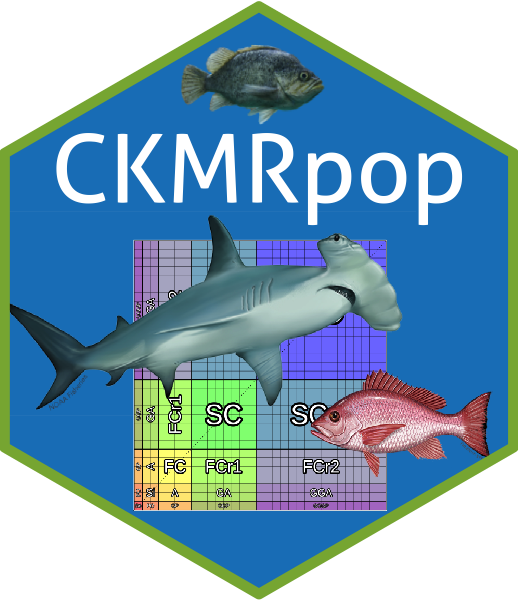Forward-in-Time Simulation and Tallying of Pairwise Relationships.
CKMRpop 
CKMRpop is an R package for forward-in-time simulation and tabulation of pairwise relationships in age-structured populations. It provides a wrapper for running the compiled C-program spip (Anderson and Dunham 2005), which simulates an age-structured population forward in time. The output of spip is processed by functions in CKMRpop and used to identify related pairs of individuals in samples taken from the simulated population.
Installation
To install CKMRpop from GitHub, first do this:
remotes::install_github("eriqande/CKMRpop")
Installing this requires that you have your build environment set up for compiling RCpp code.
After it is installed, load the library and download and install the spip binary appropriate for your system (Mac and Linux currently supported. Not Windows…yet):
library(CKMRpop)
install_spip(Dir = system.file(package = "CKMRpop"))
The following shows an example of the use of CKMRpop for an example life history.
Online documentation
The package documentation and vignettes are available in pkgdown format at https://eriqande.github.io/CKMRpop/
The first vignette in the package demonstrates the use of most of the functionality in the package in the context of simulation of the life history of “Species 1” which looks like a fish that can be sampled at relatively early life stages. It can be found in the “articles” tab on package website, or you can go directly to it here.
Literature Cited
Anderson, Eric C, and Kevin K Dunham. 2005. “Spip 1.0: A Program for Simulating Pedigrees and Genetic Data in Age-Structured Populations.” Molecular Ecology Notes 5 (2): 459–61.